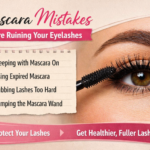Acne can be frustrating and difficult to deal with, but the best approach is to prevent it before it even starts. While genetics and hormones play a role in breakouts, simple lifestyle changes and proper skincare can make a huge difference. Here are eight proven tips to keep acne at bay and maintain clear, healthy skin.
1. Keep Your Face Clean
One of the easiest ways to prevent acne is by washing your face regularly. Dirt, oil, and bacteria can clog pores, leading to breakouts. Follow these simple steps:
- Wash your face twice daily using a gentle cleanser.
- Avoid harsh scrubbing, which can irritate the skin and worsen acne.
- Always remove makeup before bed to prevent clogged pores.
2. Use the Right Skincare Products
Choosing the right skincare products can significantly impact acne prevention. Look for:
- Non-comedogenic products that won’t clog pores.
- Oil-free and fragrance-free formulations to avoid irritation.
- Gentle exfoliants with salicylic acid, glycolic acid, or tretinoin to remove dead skin cells and promote cell turnover.
Tretinoin, a powerful retinoid, helps unclog pores and reduce inflammation, making it a great choice for acne prevention. Avoid heavy creams and products containing alcohol, which can either clog pores or dry out your skin excessively.
3. Maintain a Healthy Diet
What you eat plays a crucial role in skin health. Studies suggest that certain foods can trigger acne. To keep your skin clear:
- Avoid high-glycemic foods like white bread, sugary snacks, and soda.
- Reduce dairy intake, as some studies link it to acne flare-ups.
- Eat more antioxidants from fruits, vegetables, and nuts to combat inflammation.
4. Keep Your Hands Off Your Face
Touching your face throughout the day can transfer bacteria and oils, leading to clogged pores and breakouts. To minimize the risk:
- Avoid picking at pimples, as this can cause scarring and worsen inflammation.
- Keep your hands clean to prevent spreading bacteria to your skin.
5. Stay Hydrated
Drinking plenty of water keeps your skin hydrated and helps flush out toxins. Dehydrated skin can lead to excess oil production, increasing the chances of breakouts. Aim for at least eight glasses of water per day to maintain a healthy complexion.
6. Manage Stress Levels
Stress triggers hormonal changes that can lead to acne flare-ups. Finding ways to reduce stress can help keep your skin clear. Try:
- Regular exercise, which boosts circulation and reduces stress hormones.
- Meditation or yoga, which promotes relaxation.
- Adequate sleep, as poor sleep can worsen inflammation and oil production.
7. Change Your Pillowcases Regularly
Your pillowcase collects oil, dirt, and bacteria from your skin and hair. Sleeping on the same pillowcase night after night can contribute to acne breakouts. To prevent this:
- Change your pillowcase at least twice a week.
- Use a silk or satin pillowcase, which absorbs less oil than cotton.
- Avoid sleeping with unwashed hair, as hair products can transfer onto your pillow and cause breakouts.
8. Use Sunscreen Daily
Many people with acne avoid sunscreen, thinking it will clog their pores. However, sun damage can worsen acne and lead to hyperpigmentation. Choose a lightweight, non-comedogenic sunscreen with at least SPF 30 to protect your skin without clogging pores.
If you use tretinoin, it’s even more important to wear sunscreen, as tretinoin makes the skin more sensitive to UV rays. Consistent use of tretinoin alongside sunscreen can help keep your skin clear and prevent acne scars.
Final Thoughts
Preventing acne before it starts is all about maintaining a proper skincare routine, making healthy lifestyle choices, and avoiding habits that lead to breakouts. Incorporating tretinoin into your routine can be an effective way to combat acne early, as it helps to speed up skin cell renewal and unclog pores.
By following these eight proven tips, you can reduce your chances of developing acne and enjoy clearer, healthier skin.







